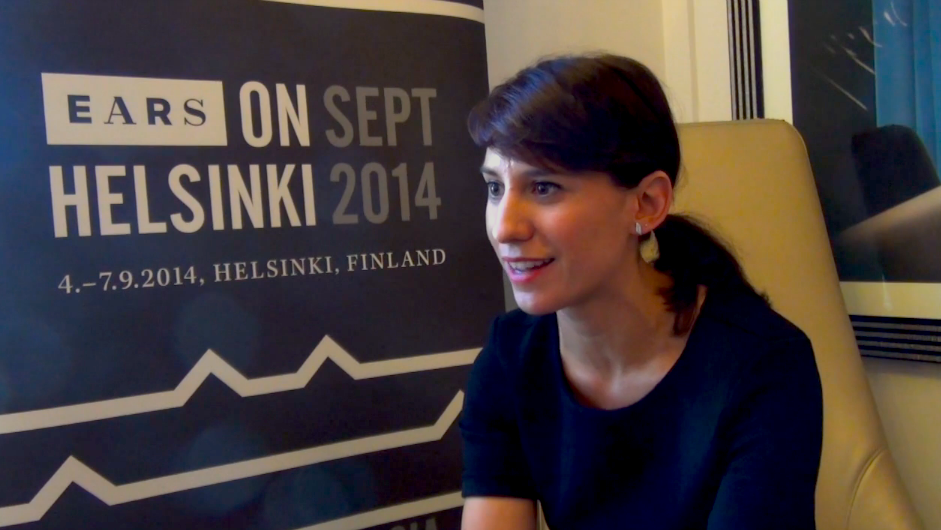
Dutch native Esther Muñoz Grootveld broadened her scope to China in 2011 and is now the Brand Consulting Manager at Shanghai-based design agency COORDINATION ASIA. Besides her day job, Esther is an independent creative consultant. Her most recent project, the online sustainable fashion initiative The Dotted Suit Project, was launched in July 2014. EARS has a chat with Esther about fashion branding in China and the country’s luxury goods market.
Who are you and what do you do?
I’m Esther Muñoz Grootveld and I’m Dutch but based in Shanghai since a little bit more than three years now. I work in Shanghai as a consultant specialized in design and fashion.
You are the Project and Brand Consulting Manager at design agency COORDINATION ASIA. What kinds of thing you are working with?
At COORDINATION ASIA I’m mostly consulting on space design and branding for museums, retail clients and brands. They either already are in the Chinese market or want to set up a cultural or retail space and need advice on branding, design and communication.
Coordination Asia is basically my day job and besides that I’m a freelance consultant. My freelance work is more focused on fashion because that’s where my background is. I consult designers coming from European countries to the Asian market or other way around.
[quote text=”People need to believe your story because there’s so much to choose from, especially in fashion, and especially in Asia.”]
What do you think are the main qualities of success in the fashion industry?
For now, it’s very important to have a very strong story. I think that before people differentiated themselves either through design or the concept. Of course you have to have high quality materials and design, you have to have a good business plan but also your story needs to be on spot. So when you look at how you set yourself out in the market, you really have to think why is your brand story original and how is it related to your product. And all together, it needs to be authentic. People need to believe your story because there’s so much to choose from, especially in fashion, and especially in Asia.
What makes a great fashion brand for you?
For me a good fashion brand brings timeless products that do not necessarily follow flows of fashion. I like brands and products that you buy and keep for a long time, products that tells a story and are produced in responsibly way.
How would you compare European and Chinese fashion consumers?
I think that European consumers have kind of evolved beyond the story and are really focusing on sustainability, ecological and responsible producing – honest, maybe even like handmade style products. In China, people are still really focusing on the story. In Europe, we have turned our mind-set to a little bit towards honest products but in China it’s more about honest stories. When looking at the fashion products authenticity, honesty and uniqueness are what we have in common. But maybe in Europe, the way the product is produced, that you know it’s real and good is a little bit more important than in China.
You have talked about the new luxury in China. What do you mean by that?
I’ve only been in China for three to four years but in this short time I’ve seen how quickly the market changes. Something like 10 years ago, fashion consumers in China looked towards the west for inspiration. Most people didn’t have means to buy big labels so they were buying cheaper, maybe not that well-designed and well-produced products. Now when the wealth and taste of fashion in China are increasing, people started to think that wearing brands like Gucci, Prada, Louis Vuitton means expressing that you’re moving up. But slowly I think it’s changing and Chinese fashion consumers are moving towards understanding that they can actually use fashion to express their own unique identity, not just to label themselves as well-offs.
This is where the new luxury comes in. People are looking for products that really express their unique culture identity and that they have evolved taste. They have money to spend but they are picky about where they spend it on. They are looking for unique products that nobody has in the market where you can get everything, copied or non-copied. In China, it’s really challenging to find something unique that nobody else has. The fashion pioneers in China are looking for those products: unique, maybe even China designed, one-off products that they can show to their friends and say “I’m unique cause I’m wearing this”. This is what I called “the new luxury”.
What’s your vision on upcoming trends in the fashion business?
I just met a Finnish designer called Satu Maaranen and I was very impressed by her. One of reasons was that she has a very interesting vision on her role as a designer. She doesn’t necessarily want to start her own brand. She just sees herself as somebody with a vision of fashion and who is interested in textiles and patters. She’s a craftswoman but also a businesswoman. This is interesting because when I was working in the Netherlands and speaking with young fashion designers, I remember that everybody wanted to be a new Versace. They came out from school and wanted to have a store with their name above it. Meaning of being a fashion designer was having your name on a label.
My vision is that as a designer your role is to make creative solutions using your skills. Satu is a very nice example of a new fashion designer who uses her skills as a fashion professional but also looks into interior and art. She’s kind of a hybrid and I think this is where the fashion business is going in the future. Sometimes the design disciplines, especially in fashion, kind of close themselves in their own world. My personal hope is that the fashion circles will open up and start collaborating more with architects, designers, technologists and whatever may come along.
What inspires you most at the moment?
Travelling and talking to different people inspires me most in general. I try to move around all the time and living in a city like Shanghai has a big advance because people come in all the time. What really shapes my vision and inspires me on design and also in life in general is talking to people living in different cities. That just brings new ideas. I would advice everybody to travel and definitely come to China!

